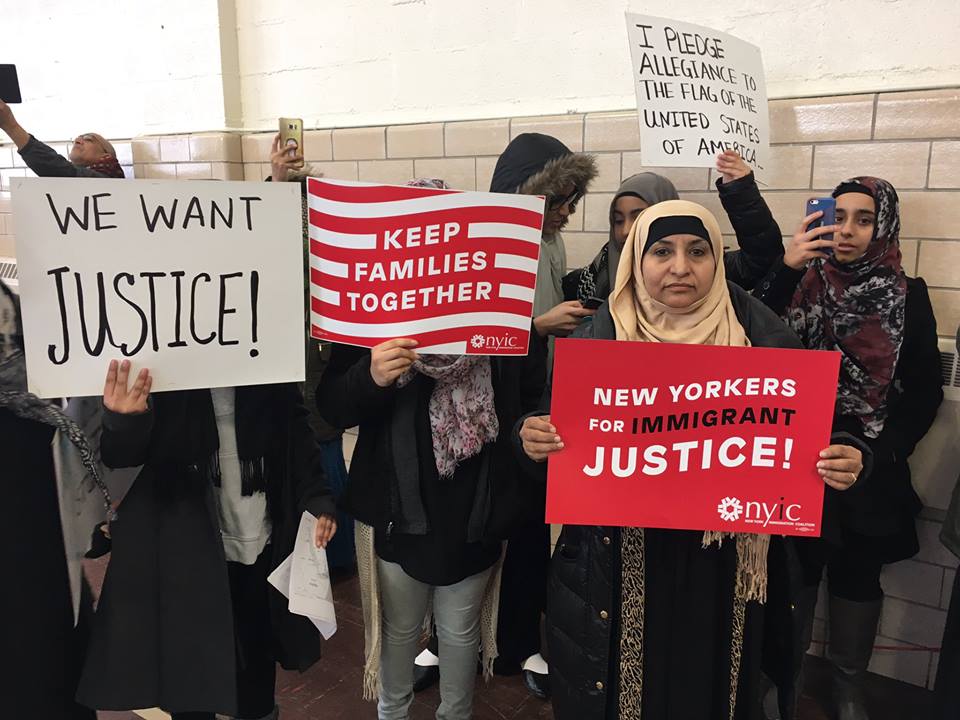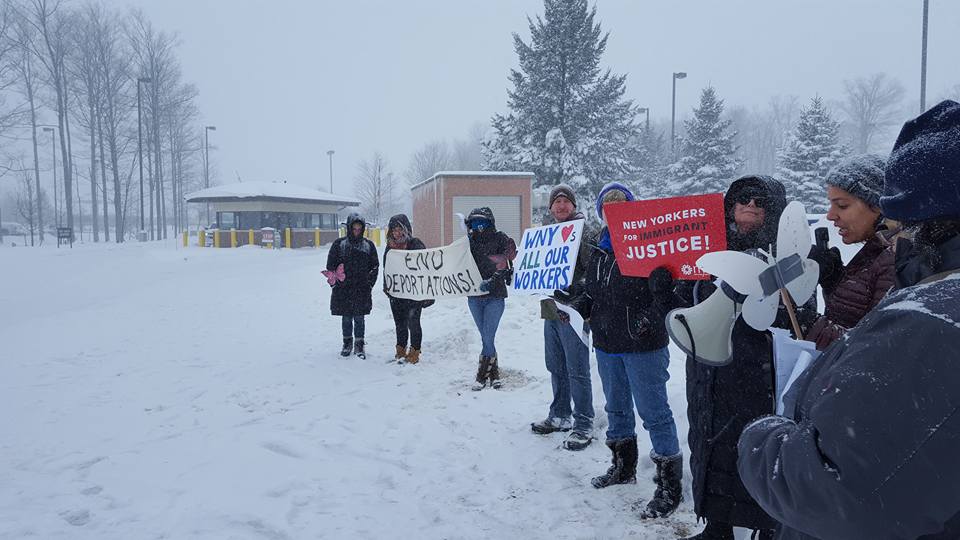
Meghan Maloney de Zaldivar, Senior Associate for Regional Outreach
Meghan is the new Senior Associate for Regional Outreach at the NYIC. Based out of Buffalo, New York, she supports the Coalition’s organizing and advocacy efforts in Western New York - such as our campaign to expand access to driver’s licenses to all New Yorkers, regardless of immigration status. Here, Meghan reflects on joining the NYIC, the new political climate and the sentiments she encounters in Western New York, and living and working in Buffalo.
What brought you to the NYIC?
I moved back to Buffalo about 3 years ago from El Salvador, and I had been looking to do immigrant rights work. I did some organizing on the ground in the area, and worked with a lot of immigrants and immigrant rights groups, but after recent raids in the region, the NYIC came to my attention as a powerful statewide group focused on immigrant rights. That’s when I found the position in my area - where I was born and raised! My work covers Western and Central New York, which is a pretty broadly defined area. My focus right now is on Buffalo, Rochester, Syracuse, and the rural areas in between.
In what ways do you hope the NYIC's Regional team and program will grow this year?
Continuing to involve our members in the collaboratives that we run is a really important step. It’s a two-way street: we need to have members in this area participate in our tables and advocacy work, but also make sure the NYIC remains informed on the issues on the ground in these areas, and brings these issues into our discussions and policy decisions. Our regional members need access to information on our statewide advocacy work.
What are a few of your goals for Central and Western NY in the coming year?
Right now, there’s a lack of coordination and capacity to do organizing work in this region. My goals include taking a more active role in shaping coordination, and helping groups and individuals in the area to talk to each other - incorporating our most strategic action items on the state level into our local organizing efforts. That’s super important to move toward this year, and our partners are excited to be a part of it. On a regional level, I want to continue to bring the region together for actions and increase our coordination so that we can have an impact beyond the local level. There’s so much energy to do more and more of this work. It’s a little overwhelming but exciting!

What do you see as the biggest challenge(s) that the Regional team will face this year, and in the future?
I think the biggest challenge continues to be capacity - even though I’m now working out here there’s still much to be done. So many of our grassroots partners are short on capacity, and so consumed with addressing the needs of the directly affected people they work with, that it’s really hard to continue to build some of the larger campaigns at the same time. They do an amazing job trying to balance these, but it’s still a challenge to work within that dynamic. Bringing support to our partners - and giving them what they need so they can continue to work with these populations - is the biggest challenge.
In my region in particular, we have a very large refugee population, and they are viewed favorably both by people who don’t typically support immigration and those that do. The economic impact of refugees is huge. Trying to incorporate and build solidarity between refugee, undocumented, and other populations affected by the travel ban (and other recent policy changes) is another challenge because each group has different issues and different support systems. Building solidarity is a priority for us moving forward.
What is your favorite part about living and working in Buffalo?
Being able to connect the roots that my family has here with the current struggles for social justice, including immigrant rights, is the most amazing part of my job and my life here. My family is white middle-class, and we have family and friends who have not been very active in social justice movements. But, because of the political climate and our connections with each other, they’ve become more interested in what’s going on. I’ve struggled with how to deal with some of these problematic roots, and it’s interesting to be able to come to these family and friends - and explain why something is problematic and what we are working on. That’s one of my favorite things about working in Buffalo!
I’ll never forget the first event I organized in Buffalo: it was -4 degrees and snowing sideways; you couldn’t see more than 10 feet ahead of you. We still had 40 people at that rally despite the harsh conditions. The community is resilient - not just around weather, but around all obstacles. People continue to show up despite these things - and they show up for one another.

